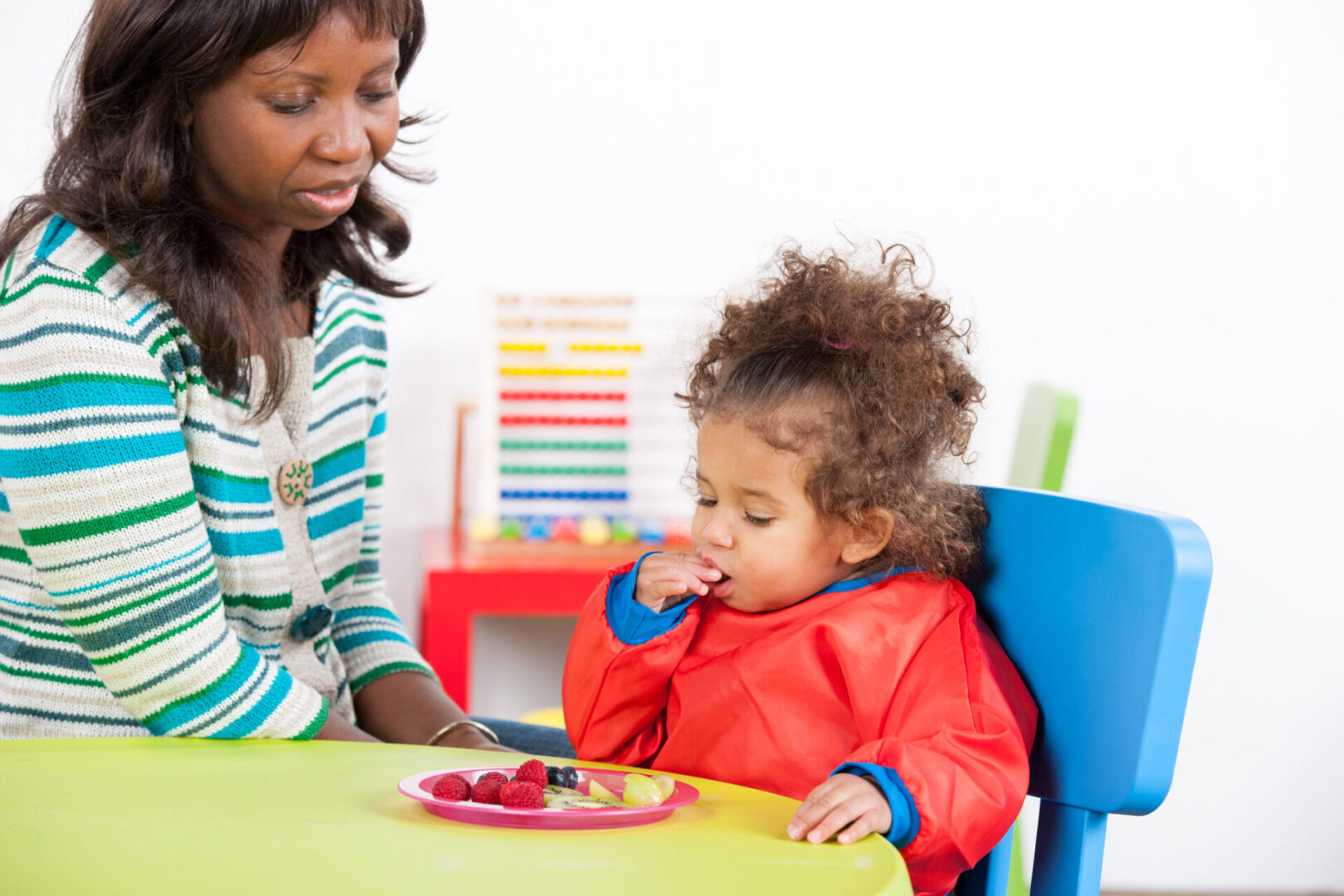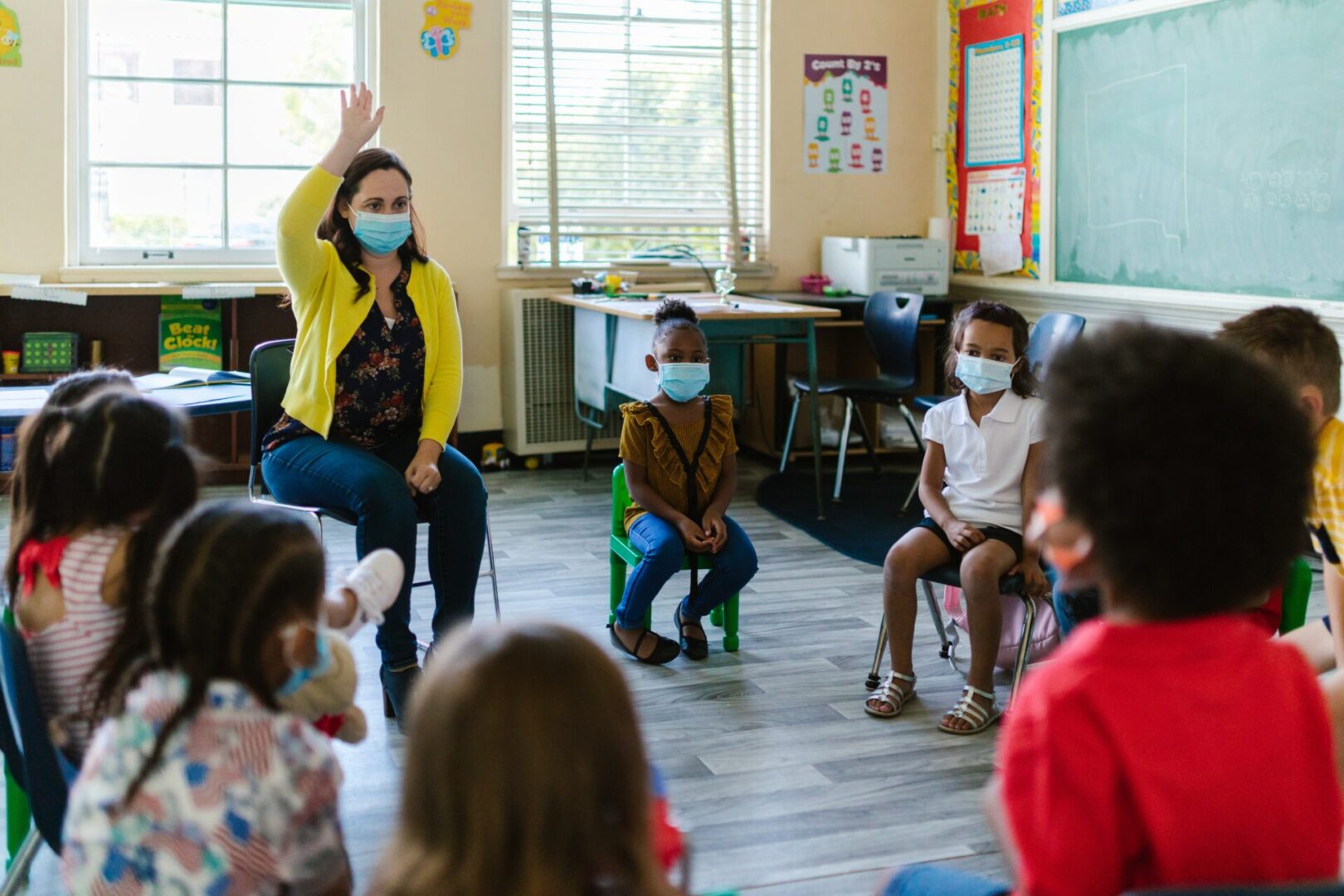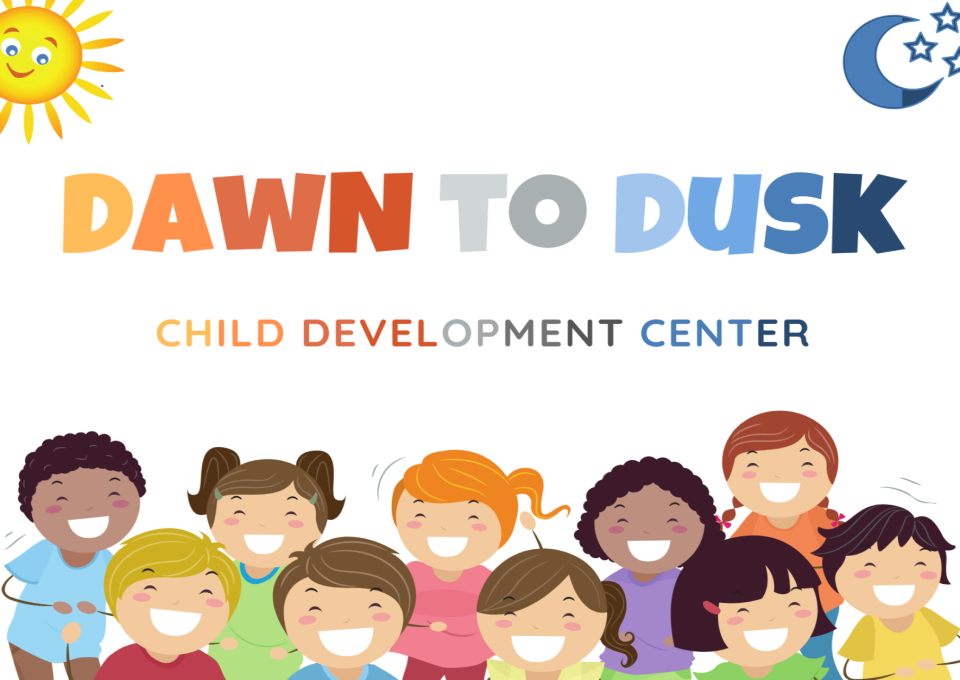DAWN TO DUSK
Helping Your Child Adapt to Higher Levels of Learning

CACFP
Our CACFP program provides breakfast, lunch, and PM snacks to children enrolled in our traditional early childhood education program. Dinner is also provided to students receiving non-traditional evening services.
The goals of the CACFP are to combat hunger, bring healthy foods to centers serving children and/or adults, and teach children about the benefits of healthy eating habits at an early age.
Receiving nutritious meals early in life is critical to the establishment of positive lifelong habits. In addition, participation in the CACFP is an indication of a quality program that is interested in the health and nutrition of all students enrolled in the program.
Our CACFP program provides breakfast, lunch, PM snacks, and supper to children enrolled in our traditional and non-traditional programs. The CACFP provides guidelines for the types of food and beverages served, and guidelines for the minimum and maximum portion sizes provided to students and adults based on their age and the type of meal being served.
This institution is an equal opportunity provider.
Helping Your Child Adapt to Higher Levels of Learning

CACFP
Our CACFP program provides breakfast, lunch, and PM snacks to children enrolled in our traditional early childhood education program. Dinner is also provided to students receiving non-traditional evening services.
The goals of the CACFP are to combat hunger, bring healthy foods to centers serving children and/or adults, and teach children about the benefits of healthy eating habits at an early age.
Receiving nutritious meals early in life is critical to the establishment of positive lifelong habits.
In addition, participation in the CACFP is an indication of a quality program that is interested in the health and nutrition of all students enrolled in the program.
Our CACFP program provides breakfast, lunch, PM snacks, and supper to children enrolled in our traditional and non-traditional programs. The CACFP provides guidelines for the types of food and beverages served, and guidelines for the minimum and maximum portion sizes provided to students and adults based on their age and the type of meal being served.
This institution is an equal opportunity provider.

Preventing Illness in Our Center
Due to COVID and the impact viruses like Respiratory Syncytial Virus (RSV) and Conjunctivitis (Pink Eye) have on young children, we are maintaining restrictions and have changed policies regarding parent access, cleaning and sanitization, illnesses, and safety for our students and staff.
These policy changes will ensure we are doing everything we can to prevent the spread of COVID, RSV, and other common viruses. Our focus is the health and well-being of our students, teachers, and other staff members.
Under our new policies:

Health Checks
The center health check policy is important to ensure the health and safety of all children and staff in the Early Childhood Environment. The check aims to identify children or staff with symptoms of illness and refer them to seek medical care when needed. Health checks are completed at drop-off and throughout the day to reduce the spread of infectious diseases and identify any illness or injury.
Our health checks include checking to see if the child is coughing, wheezing, or having difficulty breathing. They include looking at a child’s skin to see if there are any visible rashes, sores, swelling, or bruising. We check to see if a child’s eyes are red, crusty, or watery. We will also check for signs of runny nose or sneezing.
If any of these signs are present after drop-off, the parent will be notified, and the child may be excluded from care until the symptoms are gone or they have received care and a return to school note after seeing a doctor.
